terrorism
Latest
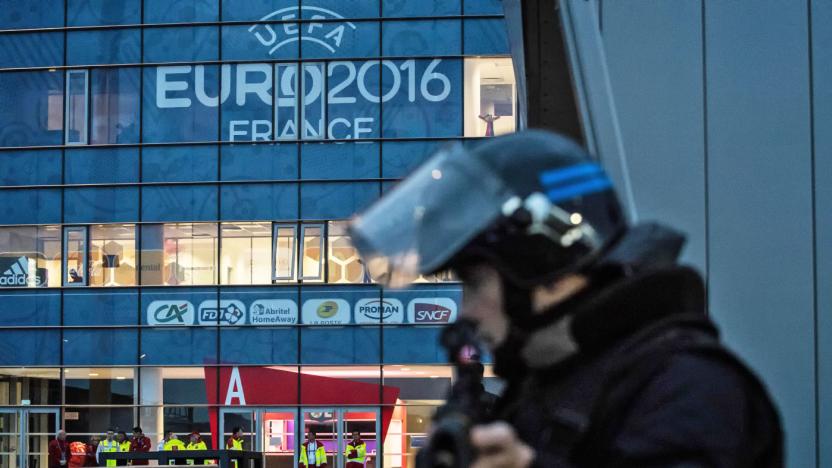
France releases terror alert app in time for Euro 2016
With the Euro 2016 football tournament starting on June 10th, France has unveiled a smartphone app that alerts users to terrorist attacks. Called SAIP (System to alert and inform the population), it allows you to opt-in to geolocalization or select up to eight regions to monitor. If you're at a game where an attack has occurred, your smartphone will display an alert screen, otherwise, you'll get a notification. It will also advise users on what do do, with instructions like "take shelter" and "stay down," according to France's Ministry of the Interior.

ISIS worries that fake Android apps are spying on its ranks
ISIS' attempts to disseminate its extreme message through mobile apps might be backfiring. Motherboard has learned that the group is warning members of fake, malware-laden versions of its Android apps that allegedly spy on users. While it's not clear who's creating the apps (besides "dubious sources"), it's implied that at least one government is trying to snoop on ISIS through unsuspecting members. Those militants can't just stick to 'official' sources to be safe, either -- ISIS' official channels frequently go down, so many of those backing the group's hateful cause have no choice but to go through unofficial routes.

Microsoft is purging terrorist content from its services
Microsoft is officially prohibiting users from posting anything that incites terrorist acts on its services, including Xbox Live, Outlook consumer version and document-sharing website Docs. In a blog post, the tech giant explained that it's taking these steps, because it has "a responsibility to run [its] various internet services so that they are a tool to empower people, not to contribute, however indirectly, to terrible acts." For Bing, however, the company will only remove links to websites if the authorities demand it. Search engines don't host content, after all, and Microsoft has to respect people's "right to access information."

Saab built a robot to stop underwater terrorist bombs
The US isn't just worried about terrorist bombings above-ground -- it's concerned about bombs below the waves, too. To that end, it's working with Saab on a remotely-controlled underwater robot, the Sea Wasp, that's designed to deal with improvised explosives. The machine (a smaller take on the existing Seaeye) uses a mix of sonar and a manipulator arm to find, move and sometimes disable explosives. Its party trick is its sheer maneuverability. It can hover in virtually any position, helping it dispose of bombs even when they're attached to a ship's hull.

Twitter blocks US spies from analyzing your tweets
There's more tension between tech firms and the US government, as Twitter has reportedly blocked spy agencies from a service that helps them root out terrorists. According to the WSJ, the social network cut off the government from Dataminr, a company that analyzes every public tweet sent. Though Twitter doesn't own the service (it has a five percent share), it does provide it with unique access to its central data line. Neither Twitter nor Dataminr have confirmed the details publicly, but unnamed intelligence officials have corroborated the story.
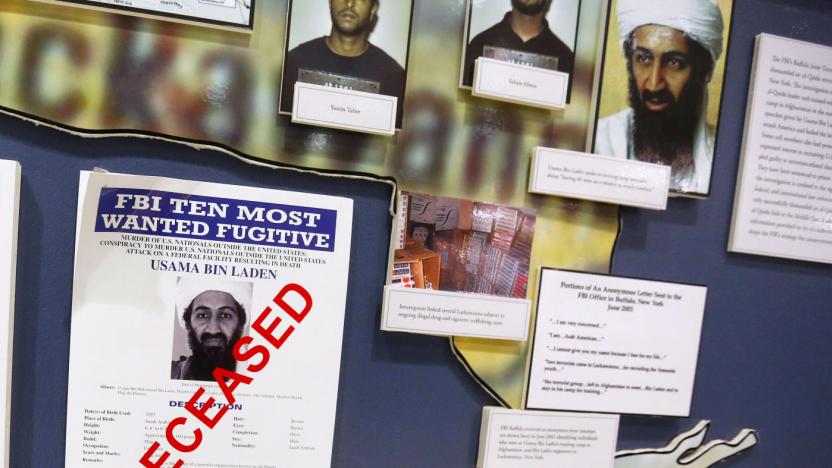
The CIA thought live-tweeting the bin Laden raid was a good idea
Tweeting a historical event as it happened can be enlightening, such as when the History Channel reenacted the sinking of the Titanic. It provides the context and time scale that you might miss reading a news story. However, the CIA just showed why this isn't always a good idea. The agency decided to recreate the raid that killed Osama Bin Laden through 'live' tweets this weekend, starting with the operation's approval and ending with confirmation of the terrorist leader's death. It was supposed to be informative, but it ended up rubbing a lot of people the wrong way... and it's not hard to see what triggered that outrage.
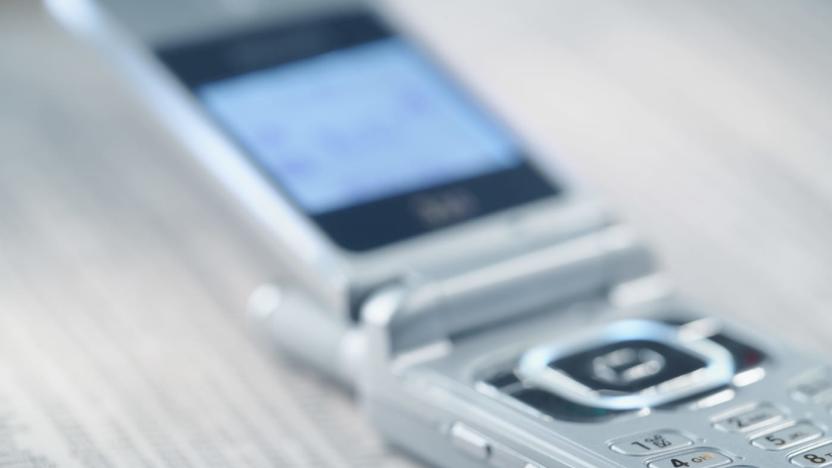
House bill would discourage crooks from using burner phones
For many criminals, prepaid "burner" phones are a dream tool: they're cheap, commitment-free... and most importantly, don't require ID that could reveal the buyer. House Representative Jackie Speier wants to put an end to that anonymity. She just introduced a bill, HR4886, that would require prepaid phone sellers to verify ID through common sources like credit cards, drivers' licenses or Social Security numbers. In theory, this prevents drug dealers, terrorists and other crooks from evading law enforcement by using untraceable phones that they can toss at a moment's notice.

US carriers cover the costs for calls and texts to Belgium
If you're determined to get in touch with friends and relatives who were in Belgium during the March 22nd terrorist attacks in Brussels, you're about to get a helping hand. Major US carriers (so far including AT&T, Sprint, T-Mobile and Verizon) are all waiving the costs of calls and text messages to Belgium to help you confirm that everyone is safe and sound. The extent of the offer varies -- Verizon's waiver runs through March 23rd, while Sprint will take care of you until March 31st. Some (such as T-Mobile and Verizon) are covering calls to Turkey following its incident, as well. It's an all too familiar gesture (carriers did the same following the Paris attacks), but it's an important one if you need to reassure yourself with a familiar voice.

US Army turns to phone app to prevent base attacks
Neighborhood watch apps aren't just for civilian streets. The US Army has forged a deal with CloseWatch to use a mobile crime reporting app, iWatch Army, to prevent mass shootings and other crimes at over 20 domestic bases. The software forwards tips (based on the FBI's own crime codes) to the appropriate unit in less than 8 seconds, or faster than a 911 call. It also has its own notifications, so you can get an alert if there's a credible threat. While iWatch Army isn't meant to replace emergency services, it could be crucial to catching terrorists before they're ready to strike.

Scientists can identify terrorists by their victory signs
To no one's surprise, many terrorists aren't willing to divulge their identities -- they'd rather cover themselves head-to-toe than risk a drone strike or police bust. Researchers, however, may have made it that much harder for these extremists to hide. They've developed a biometric identification technique that can pinpoint people by the V-for-victory hand signs they make. By measuring finger points, the gap between them and two palm points, scientists can identify someone even when there are no other telltale cues. In some cases, it was more than 90 percent accurate.
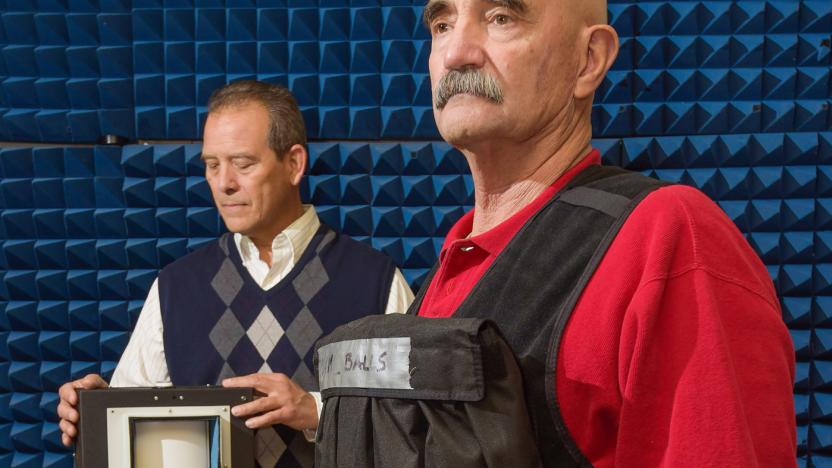
A real suicide bomb detector should arrive this year
Ever since terrorism became an all-too-real fact of life, people have dreamed of suicide bomb detectors that spot an explosive vest before its wearer has a chance to detonate. However, making a working example has proven elusive. Some companies threw their hands up in frustration after developing systems that just weren't accurate enough. Others, meanwhile, didn't even try that hard -- the UK went so far as to ban some detectors that proved utterly ineffective. At last, though, it looks like a genuinely functional suicide bomb detector is on the horizon.

Pro-ISIS hackers threaten Facebook and Twitter over crackdowns
Surprise: ISIS isn't happy that social networks are taking down accounts sympathetic to its cause. Vocativ has obtained a video from a pro-ISIS hacking group that threatens retaliation against Facebook and Twitter for joining the US' campaign to fight online terrorist propaganda. The clip insists that the group will take 10 accounts for every one that Facebook or Twitter shuts down, and promises to eventually "delete" the sites entirely. There's also a segment where images of Facebook's Mark Zuckerberg and Twitter's Jack Dorsey are riddled with bullet holes.
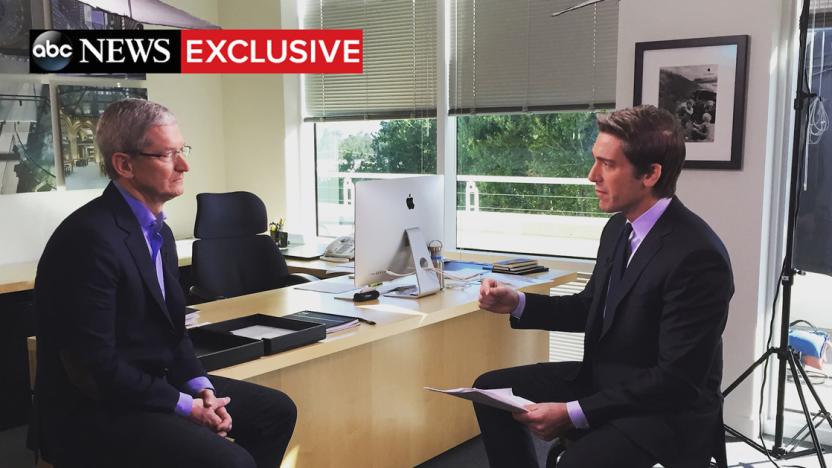
Tim Cook: Unlocking terrorist's iPhone would be 'bad for America' (updated)
Apple has been in an ongoing legal fight with the government regarding the iPhone of terrorist, Syed Rizwan Farook. While the United States has filed motions compelling the company to help it circumvent the passcode of the device, the company and CEO Tim Cook have publicly refused via an open letter stating that doing so would jeopardize the safety and privacy of its customers.

Bill Gates sides with FBI over iPhone access issue (updated)
Bill Gates says that Apple should help the FBI break open the San Bernardino shooter's iPhone. Talking to the Financial Times, he said this was a very specific case: "They are not asking for some general thing." Gates has taken a different view compared to major tech companies: Facebook, Google and Twitter have all sided with Apple's stance after a judged ruled that the company needs to help the FBI in unlocking the shooter's phone to assist in their terrorism investigations.

Judge tells Apple to help FBI access San Bernardino shooters' iPhone
After a couple shot 14 people in San Bernardino, CA before being killed themselves on December 2nd, the authorities recovered a locked iPhone. Since then, the FBI has complained it is unable to break the device's encryption, in a case that it has implied supports its desire for tech companies to make sure it can always have a way in. Today the Associated Press reports that a US magistrate judge has directed Apple to help the FBI find a way in. According to NBC News, the model in question is an iPhone 5c, but Apple has said that at least as of iOS 8 it does not have a way to bypass the passcode on a locked phone.

ISIS help desk tells jihadis how to hide from authorities
The encrypted messaging service Telegram blocked 78 ISIS channels in 2015, but new ones just keep popping up. As detailed in a report provided to The Hill, the group has evolved an expanded technical "help desk" that can provide instructions to jihadists on how to escape the surveillance of Western authorities. It's operated by a group of ISIS members collectively called the Electronic Horizon Foundation (EHF), which was launched on January 30th. As of the beginning of this week, its Telegram channel had 2,200 members, although it hasn't posted much yet.

Twitter explains its handling of ISIS-linked accounts
One way ISIS has distinguished itself from other terrorist organizations is its use of social media to spread news and recruit followers. Now, following Google and Facebook, Twitter is revealing info about what it's doing to stop extremist groups from using the service to get their messages out. According to a story tweeted by its @Policy account, since mid-2015 Twitter has already banned some 125,000 accounts for threatening or promoting terrorist acts. It's also increased the size of its team reviewing those reports, and turned spam fighting tools against the groups to help filter out related accounts that pop up.

Feds tap America's top tech companies to help hunt terrorists
Today, leaders from some of the biggest technology companies in the country met with the US government to discuss ways they might collaborate to help identify and find terrorists on the internet. The massive coalition of companies, including Apple, Facebook, Twitter, Microsoft, Dropbox, YouTube and more met with officials including including NSA director Michael Rogers, White House chief of staff Denis McDonough and FBI director James Comey to discuss ways their technology might help the government battle ISIS. As reported by The Guardian, the tenor of these conversations was perhaps more positive than was first anticipated, leading some to believe that we'll indeed see some collaboration here.

US leaders meet with tech CEOs to fight terrorism online
The US is determined to knock terrorists offline whenever it can, and it's about to go to great lengths to make sure that happens. Business Insider, the Guardian and the Wall Street Journal understand that some of the country's highest-ranking officials are meeting with the CEOs of internet giants like Apple, Facebook, Google, Twitter and Yahoo to ask for stronger efforts to fight online terrorist activity. And we do mean high-ranking -- the directors of the FBI, National Intelligence and the NSA will be involved, as will the Attorney General and the White House's chief of staff.

China anti-terrorism law makes firms give up encryption keys
If you were hoping that you could regularly rely on encrypted messaging services to keep your discussions private while you're in China, you're about to be disappointed. The country has passed an anti-terrorism law that requires companies to hand over encryption keys when officials want to spy on someone's communications. Officials swear that this isn't tantamount to requiring backdoors, but it's not exactly heartening news if you rely on any app or website where it's feasible to request those keys.






